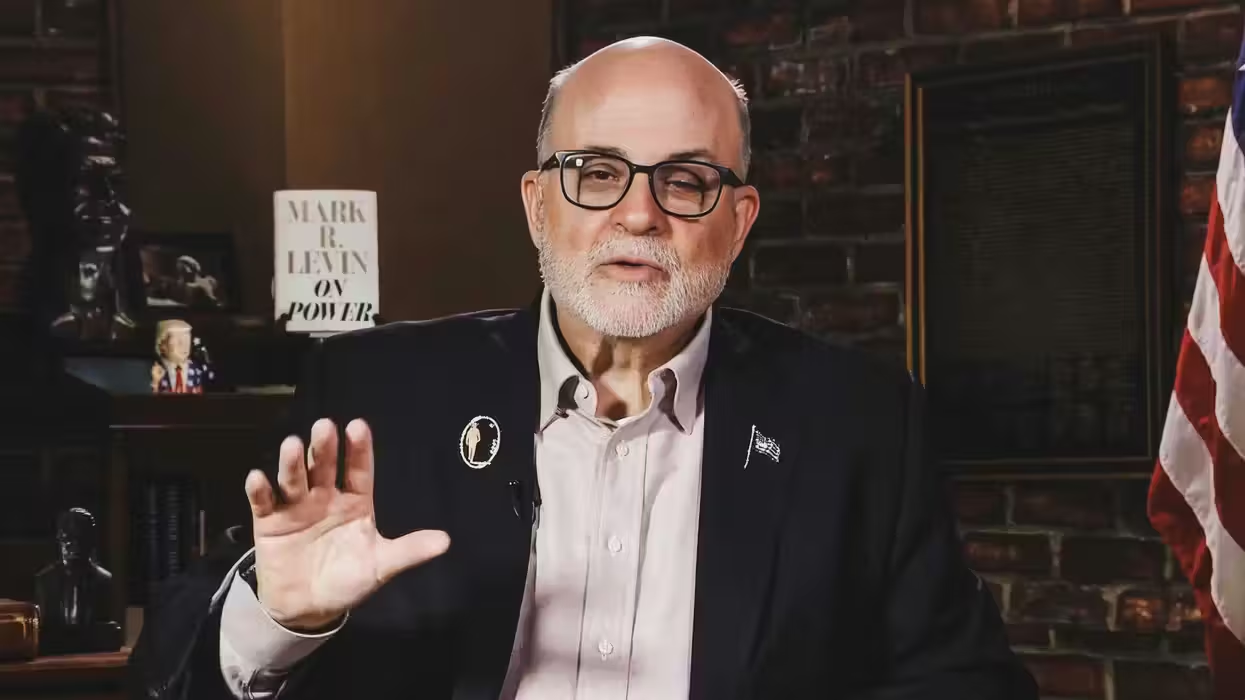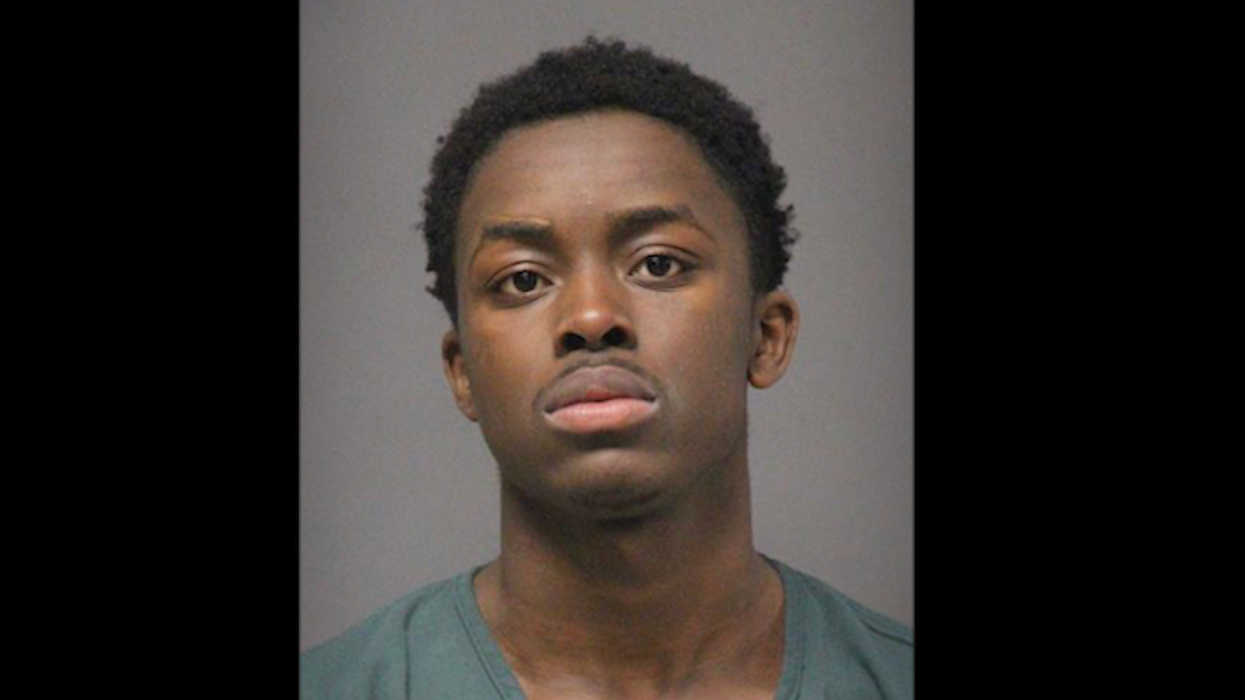
© 2025 Blaze Media LLC. All rights reserved.
"Coughlin has so frequently been called 'right-wing' it became an article of faith despite the fact that nearly all of the policies he advocated were radically progressive."
Editor’s note: Every issue of TheBlaze Magazine contains exclusive content not found anywhere else—online or in print. In the December 2012 issue, we are proud to provide exclusive excerpts from CNSNews White House reporter Fred Lucas' new book, "The Right Frequency: The Story of the Talk Radio Giants Who Shook Up the Political and Media Establishment." In the book, Lucas covers the growth, influence, major players and victories conservative talk radio has seen over the years. He provides history lessons and insight into how and why radio has been so influential.
In an exclusive feature for TheBlaze Magazine, "Power of Talk," Lucas gives us adapted excerpts from his new book. The magazine feature includes coverage of the Left's attempts to tie right-wing talk with the liberal-progressive Father Charles Coughlin; the explosion of talk radio under Clinton; how the Right took down Harriett Miers, President Bush's untested and unknown Supreme Court pick; exactly how radio voices helped kill amnesty; the blow-back from establishment GOPers who don't like the power for on-air talent; and much more about the titans of the industry.
Below is a portion of the feature addressing the "right-wing Coughlin" accusations, exposing the truth of who Coughlin was -- a hateful left-winger. Get the full feature in the December 2012 issue of TheBlaze Magazine.
And be sure to get the book here.

Just as Rush Limbaugh was becoming a superstar in the early 1990s, U.S. News & World Report wrote, “Some Democrats see Limbaugh as a direct descendant of demagogues like Father Charles Coughlin and Senator Huey Long, who used radio in the 1930s to stir hatred against panoply of enemies, from Big Oil to Jewish bankers.” Limbaugh targets big oil and bankers?
It has been a comparison frequently made throughout Limbaugh’s rise to prominence during the Clinton presidency. Newsweek, in a 2008 article, referred to Coughlin as a “right-wing radio priest of the 1940s.” In 2009, former Clinton White House counsel Lanny Davis wrote about the “1930s right-wing radio commentator, Father Charles Coughlin” in an op-ed on the spat between Obama and Fox News. In 2010, the Columbia Journalism Review ran a piece with the headline, “A Distant Echo: What Father Coughlin Tells Us About Glenn Beck.” The Guardian, a U.K. newspaper, published a piece that said, “It is, in fact, a description of Father Charles Coughlin, the infamous rightwing ‘radio priest,’ whose broadcasts in the 1930s disturbingly echo those of Beck today. Indeed, some experts see Coughlin as a father figure to the extremist broadcasting Beck has honed so well.”
 Coughlin has so frequently been called “right-wing” it became an article of faith despite the fact that nearly all of the policies he advocated were radically progressive. He was a staunch supporter of Franklin Delano Roosevelt, telling his vast audience in the 1932 election it was “Roosevelt or Ruin.”
Coughlin has so frequently been called “right-wing” it became an article of faith despite the fact that nearly all of the policies he advocated were radically progressive. He was a staunch supporter of Franklin Delano Roosevelt, telling his vast audience in the 1932 election it was “Roosevelt or Ruin.”
When Roosevelt took office, Coughlin insisted that no good Christian could oppose the policies of the New Deal, and he declared an end to capitalism. So how did he earn the label “right-wing”? He became virulently anti-Semitic on the airwaves and grew to sympathize with Nazi Germany. It is difficult to understand how either of those would qualify someone as a conservative. But the justification for liberal writers would be that he became just as virulently anti-Roosevelt. Never mind that the anti-Roosevelt tirades were because he thought the New Deal did not go far enough and simply lost patience with the president he so vehemently supported in the 1932 election.
Even when his show went into anti-Semitic rants and blasted FDR, all of the conspiracy theories he touted concerned big corporations and international bankers. He had moved so far out of the realm of reason that he started a third party to challenge Roosevelt in 1936. So he certainly did not lean Republican even though he assuredly was not part of the Democratic establishment toward the later crazier years on the radio.
During the 1932 campaign, he denounced President Hoover and praised Roosevelt, and spoke at the Democratic National Convention. He called the New Deal “Christ’s Deal.” In what author Jonah Goldberg described as “grotesquely sycophantic letters” to Roosevelt, the priest vowed to change his own positions on issues for on-air consumption if it would help the campaign.
Roosevelt invited Coughlin to attend the inauguration, and Coughlin praised this “Protestant President who has more courage than 90 percent of the Catholic priests in the country.” Coughlin told his listening audience. “Capitalism is doomed and is not worth trying to save.”
 Many in the progressive wing of the Democratic Party called for Roosevelt to nominate Coughlin to serve as Treasury secretary, a push that Roosevelt was wise enough to resist.
Many in the progressive wing of the Democratic Party called for Roosevelt to nominate Coughlin to serve as Treasury secretary, a push that Roosevelt was wise enough to resist.
Sounding almost like a cult leader, Coughlin once declared, “I know Congress will do nothing but say ‘Mr. Roosevelt, we follow.’” He continued, “God is directing President Roosevelt,” and that “he is the answer to our prayers.” He further warned, “If Congress fails to back up the president in his monetary program, I predict a revolution in this country which will make the French Revolution look silly.”
Father Coughlin continued his radio sermons demanding greater government control of national assets, fighting poverty and unemployment and finding villains to blame for these ills such as “the Morgan interests” and the “Tory Press,” respectively referring to J.P. Morgan and the big newspaper barons that opposed the New Deal.
But when the New Deal did not cure the nation’s ills immediately, and when the Roosevelt administration stopped including him in policymaking decisions, Coughlin turned on the president. In November 1934, the reverend established the National Union for Social Justice. Within two years, the organization began publishing a national newspaper, Social Justice. In 1936, fed up with the slow pace of the New Deal, which he began attacking as a tool of banking interests, he helped form the National Union Party—an outgrowth of the National Union for Social Justice.
Get more in TheBlaze Magazine -- order today.
And get tge new book, "The Right Frequency," here.
Want to leave a tip?
We answer to you. Help keep our content free of advertisers and big tech censorship by leaving a tip today.
Want to join the conversation?
Already a subscriber?
more stories
Sign up for the Blaze newsletter
By signing up, you agree to our Privacy Policy and Terms of Use, and agree to receive content that may sometimes include advertisements. You may opt out at any time.
Related Content
© 2025 Blaze Media LLC. All rights reserved.
Get the stories that matter most delivered directly to your inbox.
By signing up, you agree to our Privacy Policy and Terms of Use, and agree to receive content that may sometimes include advertisements. You may opt out at any time.






